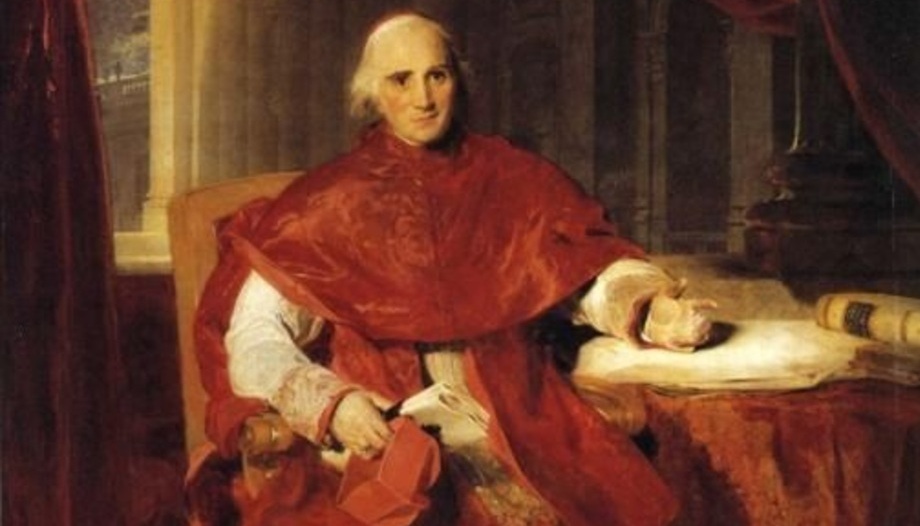On the occasion of the bicentenary of the death of Cardinal Ercole Consalvi, a key figure of the Catholic Church in the tumultuous period of the early 19th century, a series of events will be organized in the coming days in Rome involving the Secretariat of State, the Pontifical Committee for Historical Sciences, the Vatican Museums and the English College.
The protagonist of an exceptional political career and of rare strategic finesse - as some experts have described him - Ercole Consalvi was born in Rome on June 8, 1757, son of Marquis Giuseppe di Tuscania and Claudia dei Conti Carandini. After studying at the Academy of Ecclesiastical Nobles in Rome, his political career began with the conclave opened in Venice on November 30, 1799, after the death of Pius VI. Later, under the pontificate of Pius VII Chiaramonti, he was appointed Prosecretary of State and then Secretary of State in 1800, despite being only a simple prelate.
A skilled diplomat
At the press conference to present the initiatives to be carried out in commemoration of the Cardinal, Father Marek Andrzej Inglot, President of the Pontifical Committee for Historical Sciences, pointed out that Cardinal Consalvi was a skilled diplomat who acted in a period of great institutional, ideological and economic turbulence. His action extended from the States of the Church to France, England, Austria and America. He was a model as Secretary of State, defending the reasons of doctrine and adapting to the contingencies of the times.
An International Study Day
Among the activities planned for the bicentenary of his death, the Pontifical Committee for Historical Sciences has accepted the proposal of the Secretariat of State to organize an International Study Day, to be held on January 22-23 in the conference hall of the Vatican Museums. It will address the different dimensions of the Cardinal's work, from his diplomatic action to his cultural policies.
Visit to the United Kingdom
Another aspect of Cardinal Consalvi's experience has to do with a visit he made to the United Kingdom in 1814, which marked a turning point in Anglo-Papal relations. His polished presentation to British society contributed significantly to reducing anti-Catholic prejudice in Britain, paving the way for the passage of the Catholic Emancipation Act in 1829.
This was pointed out at a press conference by Professor Maurice Whitehead, director of Heritage Collections and researcher at the English College. In this regard, the English College and the British Embassy to the Holy See are jointly organizing two other activities, a symposium and a concert open to the public. The symposium will explore the cardinal's impact on the United Kingdom, while the concert, entitled "Power, Patronage and Diplomacy: Cardinal Ercole Consalvi (1757-1824) and Music," will be performed by the English ensemble Cappella Fede.
An enduring legacy
Ercole Consalvi died in Rome on January 24, 1824. His last words, "I am at peace", resound as an ideal testament of serenity in stormy times. Moreover, he is acclaimed as a tireless servant of the Universal Church and of the Successor of Peter, as his Cenni Biografici, published in Venice in 1824, also attest.
These initiatives to be held in Rome are therefore intended to provide an opportunity to explore the life and legacy of one of the late figures who profoundly marked the course of ecclesiastical and diplomatic history.








